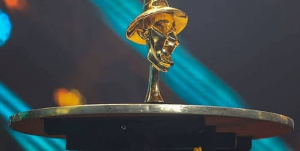A survivor of the worst gang attack on Haitian journalists says colleagues were cut down by bullets
3 min readA survivor of the deadly gang attack on Haitian journalists has shared harrowing details of the assault, which left two reporters dead and several others wounded. The attack took place just one day before Christmas at the General Hospital in Port-au-Prince, Haiti’s largest public medical facility, which had recently reopened after being forced to close earlier in the year due to escalating gang violence.
Jean Feguens Regala, a local photographer, was at the hospital covering the event when the attack occurred. He described hearing gunfire as soon as he arrived, though it initially sounded distant, coming from two or three blocks away. Regala and the other journalists present had been invited to cover the hospital’s reopening on Christmas Eve, an event that held special significance for a population struggling with a spiraling crisis. But their mission soon turned tragic.
“We thought it was going to be okay because of the armored police car we saw. There was no indication we would be attacked,” Regala recalled. “But the situation quickly escalated.”
The attack was part of a broader pattern of violence that has crippled the country, particularly in Port-au-Prince, where street gangs now control roughly 85% of the area. These gangs have been responsible for a series of coordinated assaults on police stations, prisons, and even the international airport. The violence has escalated to the point that it is threatening the collapse of Haiti’s healthcare system, already under strain from years of instability.
Johnson “Izo” André, leader of the Viv Ansanm gang group and considered one of Haiti’s most powerful gang bosses, claimed responsibility for the attack. Regala captured chilling images of the aftermath, showing wounded journalists on the floor, some bleeding heavily from gunshot wounds. He witnessed the two reporters who lost their lives, Makensy Nathou, a correspondent for Voice of America, and Jimmy Jean, as they attempted to reach safety. “They were rushing to get inside the hospital, and there was nonstop shooting,” Regala said, visibly shaken by the memory.
The Haitian Association of Journalists has condemned the attack as an act of terror, referring to it as a “macabre scene.” In addition to the two slain reporters, a police officer also lost their life, and at least seven other journalists were injured. The government of Haiti has pledged to respond firmly to the attack, calling it an “unacceptable” assault on the foundations of Haitian society. A government statement emphasized that the attack on a health institution, which was dedicated to saving lives, was a blatant act of violence aimed at destabilizing the nation further.
Haiti’s health system, already on the brink due to years of political and economic turmoil, has been severely impacted by the ongoing gang violence. Many hospitals and clinics in the capital have been looted or set on fire, and medical resources have become increasingly scarce. The surge in injured individuals from gang-related violence has left healthcare providers unable to keep up with demand. The destruction of pharmacies and medical facilities has further exacerbated the crisis, leaving the population vulnerable and desperate for care.
Regala’s account serves as a stark reminder of the dangers that journalists in Haiti face as they try to report on the country’s worsening conditions. While the media often plays a crucial role in informing the world about the daily struggles in conflict zones, those working in Haiti are increasingly caught in the crossfire, with the rise of gang violence putting their lives at risk.
The killings of Nathou and Jean have sparked outrage among media organizations, human rights groups, and the general public. The press has long been a target in countries with unstable governments and widespread violence, and Haiti’s journalists are no exception. Despite the risks, many continue to report on the dire situation, driven by a commitment to truth and justice for the Haitian people.
As the country grapples with gang violence, political instability, and a collapsing healthcare system, the international community is closely watching the situation, hoping for a resolution that can restore peace and safety to the people of Haiti. But with the violence showing no signs of abating, the path to stability remains uncertain.







